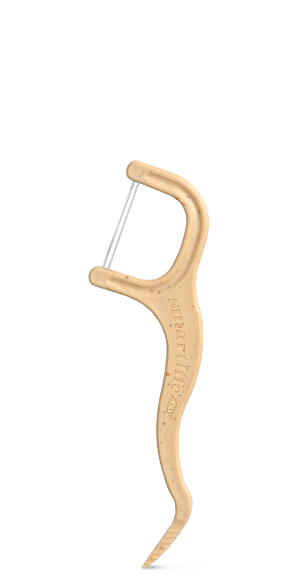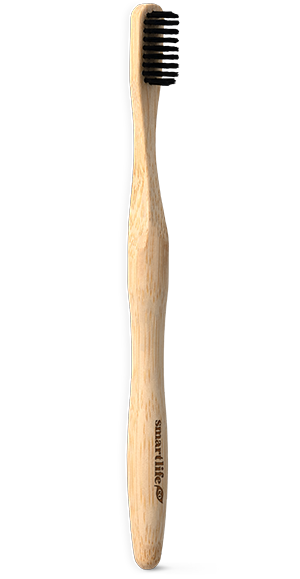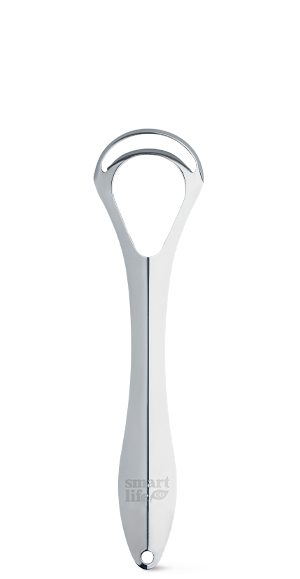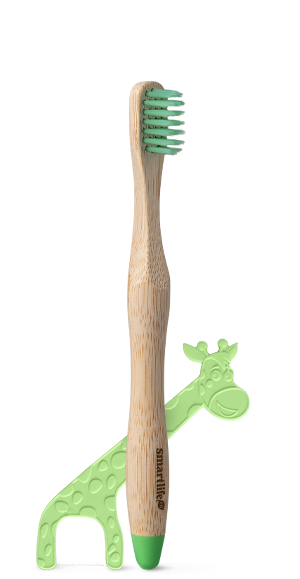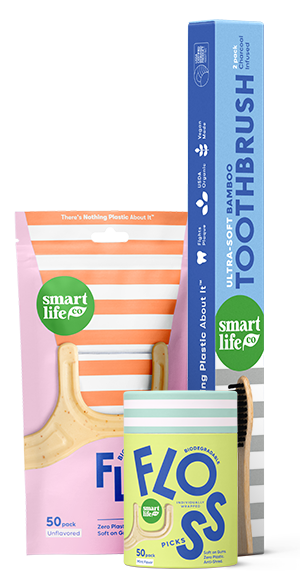Have you ever considered the environmental toll of your daily brushing routine? This article delves into the significant advantages of bamboo charcoal toothbrushes, both for your oral health and the planet's well-being. Readers will learn about the detrimental effects of traditional plastic toothbrushes, the oral health benefits of choosing the best bamboo toothbrush with ultra-soft bristles, and how making the switch to a wooden, eco-friendly alternative can contribute to a healthier environment. By addressing the urgent need for sustainable personal care, this content offers practical guidance on selecting and maintaining a bamboo toothbrush, ensuring you can confidently contribute to a greener future without compromising on dental hygiene.
Key Takeaways
- Plastic toothbrushes contribute to long-term environmental pollution
- Bamboo toothbrushes offer a sustainable and biodegradable alternative
- Choosing eco-friendly dental products supports both oral health and the planet
- Regular maintenance and timely replacement of bamboo toothbrushes ensure optimal dental care
- Educating family on sustainable choices can amplify positive environmental impact
Understanding the Environmental Impact of Plastic Toothbrushes
When one considers the journey of a plastic toothbrush from a bathroom staple to a landfill resident, the environmental implications become starkly clear. These non-biodegradable items linger for centuries, contributing to the mounting crisis of ocean pollution. In contrast, a bamboo brush offers a natural and eco-friendly alternative, such as bamboo charcoal toothbrushes. This section delves into the lifespan of plastic toothbrushes in landfills and their role in oceanic debris, setting the stage for a discussion on why bamboo brushes are not only beneficial for dental hygiene but also for planetary health.
Learn About the Lifespan of Plastic Toothbrushes in Landfills
The average plastic toothbrush, a seemingly innocuous component of daily hygiene routines, embarks on a detrimental environmental journey post-consumer use. Once discarded, these toothbrushes take their place in landfills where they persist for over 400 years, slowly fragmenting into microplastics that further contaminate the ecosystem. The bristles, often made from nylon, are equally culpable, refusing to break down and complicating waste management efforts.
Oral hygiene practices, while essential for health, need not come at the expense of the planet. The story of a single plastic toothbrush in a landfill is a microcosm of a larger issue:
- It begins with the disposal of the toothbrush after the recommended three-month usage period.
- Following disposal, the toothbrush lies in a landfill, where it remains intact for centuries.
- As time progresses, the toothbrush breaks down into smaller plastic particles, contributing to soil and water pollution.
This narrative underscores the importance of choosing eco-friendly alternatives, such as bamboo toothbrushes, which offer a sustainable solution by decomposing naturally and minimizing the reliance on plastic.
Discover How Plastic Brushes Contribute to Ocean Pollution
The journey of plastic toothbrushes to the ocean begins with improper disposal, often finding their way into waterways that lead to the sea. Once there, these non-compostable items contribute significantly to the vast islands of floating debris, endangering marine life and disrupting ecosystems. The dental industry, recognizing this issue, is shifting towards products like bamboo toothbrushes and biodegradable dental floss, which offer a compostable alternative, reducing the volume of plastic that ends up in our oceans.
Consumers play a pivotal role in this environmental narrative; every time they add a plastic toothbrush to their cart or complete a payment for non-eco-friendly dental products, they inadvertently support the cycle of pollution. By opting for sustainable dental hygiene options, individuals can make a positive impact, ensuring that their daily routines promote not only oral health but also the well-being of our planet's oceans.
Exploring the Benefits of Bamboo Toothbrushes for Oral Health
Transitioning to bamboo toothbrushes not only aids in reducing landfill waste but also enhances dental hygiene naturally. These eco-conscious alternatives boast antimicrobial properties that are beneficial for oral care, potentially improving the health of gums. As consumers weigh the price of sustainability against traditional nylon brushes, understanding the recycling potential and environmental impact becomes crucial. The following sections will delve into how bamboo toothbrushes can be a superior choice for both dental health and ecological well-being.
See How Bamboo Toothbrushes Improve Dental Hygiene Naturally
Embracing zero waste practices in dental care, bamboo toothbrushes emerge as a natural ally for both oral hygiene and sustainable living. The inherent properties of bamboo, including its antimicrobial qualities, contribute to a cleaner brushing experience, reducing the presence of harmful bacteria in the mouth. This shift towards sustainability in personal care not only supports the health of one's teeth and gums but also aligns with broader environmental goals.
Moreover, the integration of charcoal-infused bristles in some bamboo toothbrushes offers an additional layer of dental care. Charcoal is renowned for its ability to absorb toxins and stains, thus providing a natural whitening effect. As individuals seek out sustainable living solutions, the choice of a bamboo toothbrush becomes a testament to their commitment to sustainability and a proactive step in reducing waste.
Understand Bamboo's Antimicrobial Properties for Oral Care
The antimicrobial properties of bamboo, a rapidly renewable plant, make it an ideal material for toothbrushes. In the United States, where consumers are increasingly seeking eco-friendly bathroom products, bamboo toothbrushes stand out as a certified sustainable option. These toothbrushes naturally resist microbial growth, ensuring a cleaner brushing experience and promoting better oral care.
When individuals choose a bamboo toothbrush, they not only support their oral health but also contribute to a healthier planet. The plant's natural resistance to bacteria means that fewer chemicals are needed to maintain the product's cleanliness, reducing the need to ship harmful substances across the globe. This choice aligns with a responsible lifestyle, as certified bamboo toothbrushes biodegrade, leaving minimal environmental footprint.
|
Feature |
Benefit |
|---|---|
|
Antimicrobial Properties |
Reduces bacterial growth for better oral hygiene |
|
Eco-Friendly Material |
Minimizes environmental impact, biodegradable |
|
Chemical-Free |
Healthier for users and the planet |
|
Certified Sustainable |
Ensures responsible sourcing and production |
How Bamboo Toothbrushes Support Environmental Sustainability
As consumers increasingly add to cart eco-conscious options for their personal care, the shift towards bamboo toothbrushes has become a significant stride in dental product sustainability. This section examines the biodegradability of bamboo toothbrush materials, specifically highlighting the advantages of moso bamboo, a USDA certified resource known for its minimal environmental impact. Additionally, the role of bamboo in reducing the global carbon footprint will be explored, offering insights into how this business practice not only benefits oral health but also contributes to a greener planet. These topics will provide a comprehensive understanding of the environmental benefits of choosing bamboo toothbrushes over traditional options.
Examine the Biodegradability of Bamboo Toothbrush Materials
The biodegradability of bamboo toothbrush materials presents a compelling argument for their adoption. Unlike traditional plastic brushes, a bamboo brush can decompose naturally, returning to the earth without leaving harmful residues. This sustainable toothbrush option stands as a testament to eco-friendly innovation, with the bamboo electric toothbrush also emerging as a greener alternative for those preferring powered dental care.
When one opts for a wooden toothbrush, they embrace a product that harmonizes with nature's cycle. The eco toothbrush, crafted from bamboo, not only serves its purpose in oral hygiene but also assures the user of its eventual return to the soil, free from the guilt of contributing to long-term pollution. This characteristic significantly reduces the environmental footprint, making the bamboo toothbrush a choice that benefits both dental health and the planet.
Explore Bamboo's Role in Reducing Carbon Footprint Globally
The adoption of a natural toothbrush made from bamboo is a significant step toward reducing the global carbon footprint. Bamboo, as a fast-growing, renewable resource, captures carbon dioxide at a higher rate than many trees, making it a carbon sink that mitigates climate change. By choosing a biodegradable toothbrush over a non plastic toothbrush, consumers are actively participating in a larger movement to decrease reliance on fossil fuels and reduce greenhouse gas emissions.
Moreover, the production of an organic toothbrush, such as those made from bamboo, requires less energy and emits fewer pollutants compared to its plastic counterparts. The compostable toothbrush not only promises a reduced carbon footprint but also encourages a circular economy:
- Bamboo is harvested without harming the ecosystem.
- The manufacturing process is cleaner, with a lower carbon output.
- Post-use, the toothbrush can be composted, returning nutrients to the soil.
This cycle exemplifies a sustainable approach to oral care, where every step from production to disposal is designed to minimize environmental impact.
Selecting the Best Bamboo Toothbrush for Your Needs
Choosing the right eco-friendly toothbrush involves more than just selecting a sustainable material; it's about finding the perfect balance between comfort, effectiveness, and design. This section will guide consumers through the process of selecting bamboo toothbrushes that cater to individual preferences, focusing on the variety of bristle types available for oral care needs and the importance of ergonomic features that enhance the brushing experience. Each aspect plays a crucial role in ensuring that the eco-friendly toothbrush chosen not only supports dental health but also aligns with environmental values.
Choose Between Different Bristle Types for Comfort and Effectiveness
When selecting a bamboo toothbrush, the type of bristles is a critical factor for ensuring both comfort and effectiveness in oral care. Soft bristles are recommended by dental professionals to prevent gum damage, while medium and hard bristles can be suitable for those who require more vigorous cleaning. The choice of bristle type should align with individual dental needs and comfort preferences, contributing to a thorough and gentle cleaning experience.
It's essential for consumers to understand that the effectiveness of a bamboo toothbrush also hinges on the quality of its bristles: natural, infused with charcoal, or nylon with BPA-free properties. Each option offers distinct benefits, such as charcoal's natural whitening effect or nylon's durability. The following list outlines the journey to selecting the ideal bristle type for one's bamboo toothbrush:
- Assess personal oral health needs and sensitivity levels.
- Consider the environmental impact of the bristle material.
- Choose a bristle type that balances cleaning efficiency with gentle care.
Ultimately, the decision should prioritize oral health while supporting environmental sustainability, ensuring that the chosen bamboo toothbrush serves as a responsible addition to daily dental routines.
Find Bamboo Toothbrushes With Ergonomic and Sustainable Design
When selecting a bamboo toothbrush, the design's ergonomics play a pivotal role in ensuring user comfort and effectiveness. A toothbrush with a well-crafted handle that fits comfortably in the hand can significantly enhance the brushing experience, promoting better oral hygiene practices. The sustainable design of these toothbrushes, which often includes a smooth, biodegradable bamboo handle, reflects a commitment to environmental responsibility without sacrificing user experience.
Moreover, the thoughtful design of bamboo toothbrushes extends to the consideration of their life cycle. Dental professionals recommend choosing a product that not only performs well but also has a minimal impact on the environment post-use. A bamboo toothbrush with an ergonomic design ensures ease of use, while its sustainable construction guarantees that once it has served its purpose, it can be disposed of with minimal ecological footprint, thus supporting the health of both the planet and the user's teeth.
Recognize When to Replace Your Bamboo Toothbrush Timely
Timely replacement of a bamboo toothbrush is crucial for maintaining oral hygiene and ensuring the effectiveness of one's dental care routine. Dental professionals suggest that a toothbrush should be replaced every three to four months, or sooner if the bristles become frayed. This practice prevents the accumulation of bacteria and ensures that the brushing remains efficient, safeguarding both dental health and the integrity of the eco-friendly product.
For those who have made the environmentally conscious decision to use a bamboo toothbrush, recognizing signs of wear is essential. Frayed bristles can compromise the cleaning power of the toothbrush, leading to inadequate plaque removal. Users should inspect their toothbrush regularly and make the switch to a new one as soon as these signs appear, thus upholding their commitment to both optimal oral care and environmental stewardship.
Making a Smooth Transition to Bamboo Toothbrushes
Integrating bamboo toothbrushes into one's oral care routine marks a significant step towards sustainability. This transition not only benefits dental health but also the environment. Encouraging family members to adopt eco-friendly dental products can amplify this positive impact. The forthcoming sections will provide practical advice on seamlessly incorporating bamboo brushes into daily life.
Incorporate Bamboo Brushes Into Your Oral Care Routine
Integrating bamboo toothbrushes into one's daily oral care routine is a seamless process that begins with selecting a brush that meets personal comfort and dental hygiene needs. The transition is made easier by the fact that bamboo toothbrushes are designed with familiar bristle patterns and handle shapes, ensuring a minimal learning curve for users accustomed to traditional toothbrushes. As individuals make this switch, they not only enhance their own oral health but also contribute to a reduction in plastic waste, supporting the planet's ecosystems.
One's commitment to sustainable living is reinforced each morning and night as they reach for their bamboo toothbrush, a simple yet powerful tool in the fight against environmental degradation. Dental professionals encourage patients to consider the broader impact of their choices, noting that the adoption of eco-friendly products like bamboo toothbrushes can lead to significant positive changes over time. By making this conscious choice, users are taking an active role in promoting a healthier environment while maintaining impeccable dental care.
Frequently Asked Questions
What are the environmental drawbacks of using plastic toothbrushes?
Plastic toothbrushes contribute to landfill waste, persist in the environment, and release harmful chemicals, impacting ecosystems and marine life.
How do bamboo toothbrushes enhance oral health?
Bamboo toothbrushes, with their natural antibacterial properties, contribute to a healthier mouth while being gentle on gums, promoting overall oral health effectively.
In what ways do bamboo toothbrushes aid in environmental conservation?
Bamboo toothbrushes contribute to environmental conservation by being biodegradable, reducing plastic waste, and sourced from fast-growing, sustainable bamboo forests.
What should I consider when choosing a bamboo toothbrush?
When selecting a bamboo toothbrush, consider bristle type, handle ergonomics, sustainability of the bamboo source, and the disposal process for the product's end of life. At SmartLifeco, we offer charcoal-infused bamboo toothbrushes & an enhanced bamboo toothbrush pro!
How do I properly care for my bamboo toothbrush?
To care for your bamboo toothbrush, rinse bristles after use, store upright for drying, and replace every 3-4 months.
Conclusion
Choosing a bamboo toothbrush represents a responsible decision that supports both oral health and environmental sustainability. The biodegradable nature of bamboo allows these toothbrushes to decompose naturally, reducing landfill waste and ocean pollution. With inherent antimicrobial properties, bamboo toothbrushes offer a hygienic and effective option for dental care, while their production and disposal significantly lower the global carbon footprint. By selecting a bamboo toothbrush, individuals contribute to a healthier planet and embrace a lifestyle that values ecological well-being alongside personal dental hygiene.
